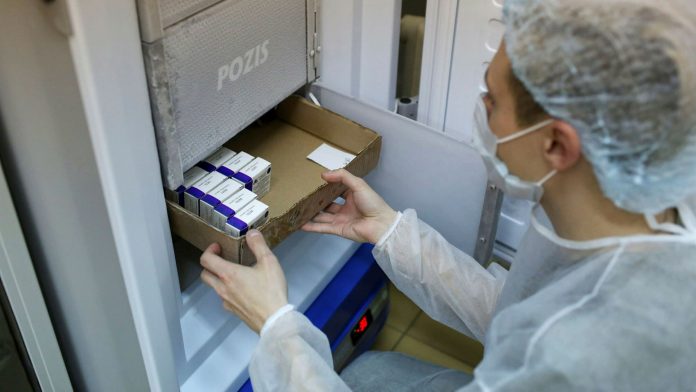The World Health Organization has advised doctors against prescribing Gilead’s remdesivir to coronavirus patients in hospital, casting doubt on the effectiveness of the only antiviral approved to treat the disease.
Remdesivir was approved by the US Food and Drug Administration (FDA) last month.
But an expert WHO panel wrote in the British Medical Journal on Friday that the drug was “not suggested for patients admitted to hospital with Covid-19, regardless of how severely ill they are, because there is currently no evidence that it improves survival or the need for ventilation”.
The notice is a so-called living guideline, routinely used in areas where research is fast-moving. Friday’s recommendation is based on four randomised trials involving more than 7,000 patients.
“Remdesivir has no meaningful effect on mortality or on other important outcomes for patients, such as the need for mechanical ventilation or time to clinical improvement,” the WHO said.
The panel noted that the certainty of evidence was low and said it did not prove the drug had no benefit. “Rather, there is no evidence based on currently available data that it does improve important patient outcomes,” it said.
But because remdesivir could potentially cause harm — and given the relatively high cost and difficulty of administering it intravenously in hospital — the panel; said it was an appropriate recommendation. It has recommended further studies.
The health body has advised using steroids to manage severe Covid-19 patients. Steroids are cheap, taken orally, and widely available. Remdesivir costs $2,340 per course, or more.
The WHO has also moved to suspend remdesivir from its prequalification list, a prerequisite for procurement in developing countries, an official told the Financial Times.
Gilead said that remdesivir, now known by its brand name Veklury, was recommended by reputable institutions including the US National Institutes of Health and the Infectious Diseases Society of America. The company said that there was “robust evidence” from multiple studies showing that the drug accelerated Covid-19 recovery.
“We are disappointed the WHO guidelines appear to ignore this evidence at a time when cases are dramatically increasing around the world and doctors are relying on Veklury as the first and only approved antiviral treatment for patients with Covid-19 in approximately 50 countries,” Gilead said.
Last month, the WHO released the largest amount of evidence on the drug to date, which showed that it had no effect on mortality, hospital stays or the need for ventilation. Gilead alleged the study was flawed, but the WHO insisted that its methodology was sound.
The FDA gave remdesivir full approval last month, hours before the second US presidential debate.
Gilead reported remdesivir sales of $873m in the third quarter, missing analyst expectations of about $1bn. The biotech group warned when it announced earnings in October that there was “significant volatility and uncertainty” around remdesivir sales, with hospitals stockpiling the drug at lower rates than it had forecast.
The drugmaker was aware of negative results of the trial when it agreed a deal, worth up to €1bn, to supply the drug to European countries in October. Member states are not under any obligation to pay and the European drug regulator is currently reviewing the available trial data with a view to changing how the drug is used.
Umer Raffat, an analyst at Evercore, said there were “methodology problems” in how the WHO’s trial data were analysed. He put more weight in the trial run by Anthony Fauci’s group at the NIH, as well as Gilead’s, which were “proper large studies with appropriate randomisation and statistical analyses”.
“Plus, if someone has Covid, what other antiviral option do we have? None right now,” he said.
The WHO dissented, saying its trial “provides the vast majority of worldwide information on the impact of remdesivir on mortality and on the need for ventilation”.





